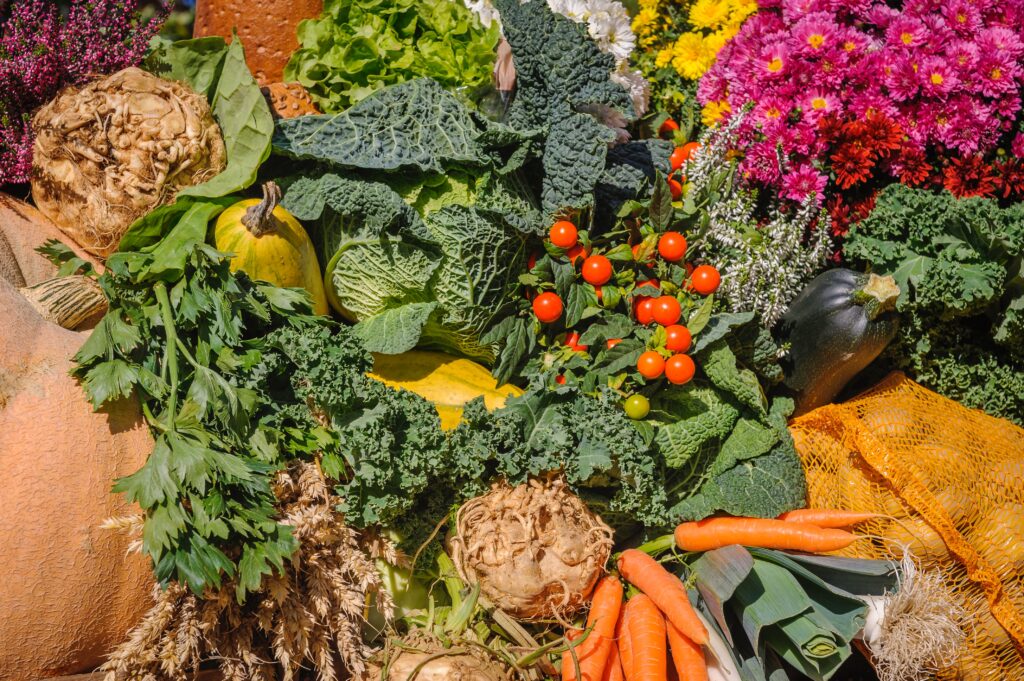
Eating seasonally is not just a way to support local farmers and reduce your carbon footprint; it also offers numerous health benefits. Seasonal produce is often fresher, tastier, and more nutrient-dense than out-of-season options. Here’s a closer look at seasonal superfoods and how incorporating them into your diet can boost your overall well-being throughout the year.
Spring Superfoods
As winter fades, spring brings a burst of freshness and renewal. This season is characterized by vibrant greens and tender produce.
- Asparagus: A true spring delight, asparagus is rich in vitamins A, C, E, and K, as well as folate. Its high fiber content aids digestion, while antioxidants help reduce inflammation.
- Spinach: This leafy green is a powerhouse of nutrients, loaded with iron, calcium, and magnesium. Spinach supports heart health, promotes bone density, and boosts immunity thanks to its high vitamin K and antioxidant content.
Incorporating these spring superfoods into salads, stir-fries, or smoothies can help rejuvenate your body after the long winter months.
Summer Superfoods
Summer is the season of abundance, featuring a colorful array of fruits and vegetables packed with hydration and nutrients.
- Tomatoes: Juicy and flavorful, tomatoes are an excellent source of lycopene, a powerful antioxidant linked to reduced risk of heart disease and certain cancers. They also provide vitamin C, potassium, and folate.
- Berries: Strawberries, blueberries, and raspberries are not only delicious but also low in calories and high in fiber. They are rich in vitamins, minerals, and antioxidants, promoting brain health, heart health, and skin vitality.
Enjoy summer superfoods in refreshing salads, smoothies, or as snacks to keep cool and energized during hot days.
Fall Superfoods
As the leaves change color, so does our diet. Fall brings hearty produce that helps prepare our bodies for the colder months.
- Pumpkin: A quintessential fall superfood, pumpkin is packed with beta-carotene, which the body converts to vitamin A. This nutrient supports eye health and boosts the immune system. Pumpkin is also high in fiber, aiding digestion and promoting a feeling of fullness.
- Apples: Often associated with fall harvests, apples are a great source of fiber and vitamin C. They contain polyphenols, which have antioxidant effects that may help lower the risk of chronic diseases.
Incorporating these fall superfoods into your meals can help fortify your body against seasonal illnesses and keep you feeling satisfied.
Winter Superfoods
Winter might seem like a time for fewer fresh options, but there are still plenty of superfoods that can nourish and energize your body.
- Kale: This leafy green thrives in cooler weather and is packed with vitamins A, C, and K, as well as calcium and antioxidants. Kale supports immune function, reduces inflammation, and promotes heart health.
- Citrus Fruits: Oranges, grapefruits, and lemons are rich in vitamin C, crucial for maintaining a strong immune system. They also provide hydration and fiber, which can help with digestion.
Embrace winter superfoods in hearty soups, stews, or fresh juices to combat the cold and support your health.
The Benefits of Eating Seasonally
Incorporating seasonal superfoods into your diet not only enhances your nutrition but also encourages a diverse and colorful plate. Seasonal eating can improve your overall well-being by:
- Boosting Nutrient Intake: Seasonal produce is often harvested at its peak ripeness, meaning it’s more nutrient-dense compared to out-of-season options.
- Enhancing Flavor: Fruits and vegetables that are in season tend to have better flavor, making meals more enjoyable and satisfying.
- Supporting Local Agriculture: Buying seasonal produce often means supporting local farmers, which helps strengthen the community and reduce the environmental impact of transporting food long distances.
- Promoting Variety: Eating seasonally encourages you to explore a wide range of foods, which can prevent dietary monotony and promote better health.

